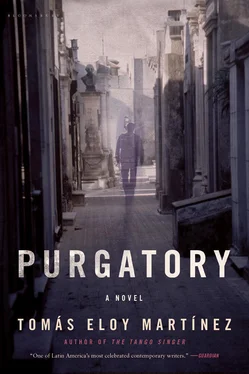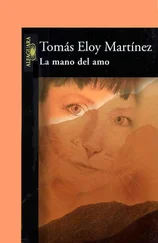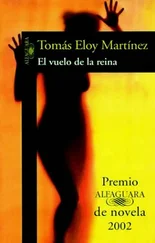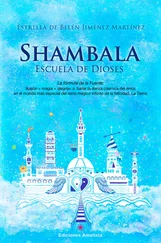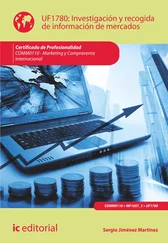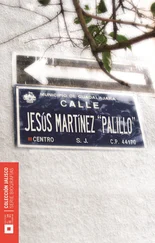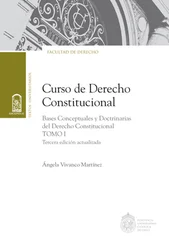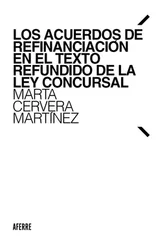Emilia listened, astonished and incredulous, and wondered if this lunatic who talked like a character out of Lovecraft or Poe was the same father who believed that even God (especially God) was governed by the laws of reason.
The remainder of the tale was even more unexpected.
‘The machine draws its power from Ganymede,’ said her father, imperturbable.
Emilia did not understand, or did not want to understand. She knew that Ganymede, one of Jupiter’s inner moons, was the largest satellite in the solar system; chains of craters had been seen on its surface and it had its own magnetosphere, but it gave off no gasses and was not protected by saints like Dymphna. Her father seemed to believe, moreover, that there were intelligent beings living beneath the crust of ice and silica, something for which there was not the least evidence. Words continued to pour out of him, there was no other way to describe it. ‘Gamma rays cure illnesses that cannot be detected; they are also capable of causing them. If we can absorb them, we must be able to emit them. I’ve watched Schroeder use them. He places the head of the patient in a device that looks like the hairdryers they use in salons and connects an antenna which picks up the body’s signals. The antenna draws a graph which the gamma rays read. This information makes it possible for them to surround the cancerous cells and send them to Ganymede where they are examined and archived. The rays are like a flock and an untrained shepherd would madden them. The only person who knows how to guide them is Dr Schroeder.’
Her father’s story went on flowing, in tributaries, estuaries, streams, deltas. One story ran into another and this into a third, sometimes moving away, sometimes circling back to the beginning. When he finished a sentence he fell silent and reminded Emilia of her solemn promise to say nothing.
‘Are you sure about this, Papá ?’ The daughter did not know what to think. Creatures from another world had always seemed to her to be the sort of madness designed to entertain the gullible. She took it for granted that if God had created Man in His image and likeness, there could be no beings in other worlds. Nor, obviously, other gods. Dupuy was prepared to counter this. A Polish theologian he had admired for some time, the Bishop of Krakow, had written that life as described in the Scriptures ‘is universal’. At the Second Vatican Council, his mentor, Pope John XXIII, had preached: ‘How small would God be if, having created this vast universe, He allowed only us to populate it.’
It was almost noon. When her father opened his study door, Chela was talking excitedly on the phone.
‘Go to the clinic, Emilia, and pack up everything in your mother’s room. We’ll move her in about half an hour.’
An ambulance sent by Schroeder transported her mother. Dupuy and Emilia drove behind. The caravan made slow progress. As it crossed the avenida General Paz and ventured into the pallid suburbs of greater Buenos Aires, the ambulance took cross streets and began to head out into the countryside. The mood of the heavens, forgetting the violent storm of the night before, was tranquil, indifferent. A few fat clouds glided roundly over the cattle and the wind lay becalmed over the vast greenness waiting for nothing. After an hour, the plain began to sink and the road to climb above it, twisting like a vein. A few petrol stations dotted the barren landscape. In the distance, a long, flat building appeared, stretching out across the ravine. On the flagpoles flanking the gates fluttered a pair of flags: one was the flag of Argentina, its horizontal stripes emphasised with pale blue stitching; the other bore two black crescent moons connected by a cord against a white field. Behind them, set on a concrete pedestal, was a hemispheric dish cast in steel. It was huge and concave with a tall, transparent pistil.
‘Schroeder’s laboratory,’ her father announced. ‘The national flag. The labarum of Ganymede.’
The building was protected by a wire fence. She could clearly see the walnut trees, white cedars, the crouching dogs, the partridges, but what most caught Emilia’s attention was the pistil in the steel hemisphere which intermittently showered sparks over the grounds.
‘Those are the rays,’ her father told her. ‘On auspicious days, multitudes of rays stream down from Ganymede. Sometimes they hang, suspended in the sky, for weeks waiting for the moment to fall. Schroeder is forcing them to drop so we can see them. It’s a privilege.’
‘They’re falling now,’ Emilia observed.
‘They fall into the antenna which filters them. A lot of the rays are of no use in the healing process. Those that collide with the asteroid belt are contaminated by the time they arrive, can you see? They bring a film of dust with them. Schroeder tested them on rats and on goats. He bathed the animals in the contaminated rays and left them to bloat and swell until they exploded.’
‘My God, that’s cruel.’
‘That is how we save the human race. Cruelty is what saves us.’
The ambulance moved forward. From the gate, Emilia saw Schroeder (she was certain that it was Schroeder) walking towards them, arms spread wide. It was difficult to look him in the eye because his pupils constantly flicked like a pinball from side to side.
‘Welcome. We’ve been lucky,’ he said to them. ‘The limpid air is favourable to the arriving rays. We will be able to see them.’
He had a harsh accent, pronouncing his Rs in such a way that they spilt his words, but his Spanish syntax was irreproachable. Every item in his laboratory occupied the one space it could occupy in the universe, the same methodical, ineluctable order that objects possessed in a painting by Vermeer. On which subject, if the painting hanging above Schroeder’s desk to the right in the room as one entered was not a genuine Vermeer, it looked very much like one: it depicted a young woman in Delft sitting before a window reading a piece of sheet music, her face bathed in the unmistakable light of the master.
‘Is that what I think it is?’ Emilia asked.
‘A Vermeer? Yes, but it’s not mine,’ Schroeder explained. ‘I risked my life for it when I left Germany. Some day its owner will come and collect it.’
Next to the office was a vast room completely filled with devices with flickering needles and coiled serpentine condensers that looked like something out of a Hollywood movie. ‘Come and see the scanner,’ said Schroeder, ‘we’ve just started it up.’ They had seated the mother in a high chair. One of the doctor’s assistants took her temperature and her blood pressure. Another moved the hood and placed it ten centimetres from her head. The machine gave off blue flashes which lit up the whole room for seconds at a time. The mother’s face registered neither surprise nor pain. It was frozen in a beatific smile.
‘We will now begin the procedure, which is as much spiritual as it is physical,’ said Schroeder. ‘If you will allow me to focus.’
He stepped behind a screen next to the bathroom mumbling something that might have been a prayer in an incomprehensible language which seemed to borrow from Sanskrit, High Gothic, Armenian and some dialects of Anatolia, sounds that had been lodged in the human throat since the dawn of Indo-European language. Schroeder emerged euphoric. His pupils fluttered like moths around a flickering flame. ‘It’s done,’ he said. ‘Place the hood on her head.’
The assistant pressed the pedal and the hood was lowered to cover the mother’s head down to the bridge of her nose. The needles flickered and the valves glowed with all the colours of the rainbow.
‘Now, lean out the window and see the effect of the rays in the pool,’ said Schroeder.
Outside, next to the house, was a rectangular pool of water with trampolines at either end. From the surface, liquid spikes rose fifteen to twenty metres into the air, never for a moment losing their narrow, needle-like shape. It was as though the water was rising and falling across a transparent surface. As it reached its upper limit, it became tinted with colour. Sometimes blue or purple, sometimes an intense green. Everything suddenly became calm and a silence descended on the room that seemed older than time itself. Schroeder triumphantly lifted up a tube containing a dark, viscous substance.
Читать дальше
